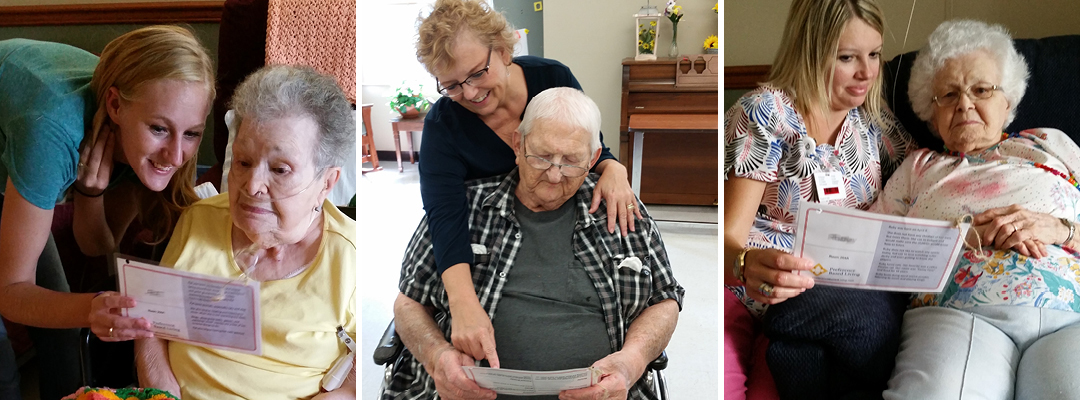Preferences for Everyday Living Inventory (PELI) project partners with Ohio nursing homes to improve residents' quality of life


The Preferences for Everyday Living Inventory (PELI) is a tool used to assess nursing home residents' preferences. It has been selected by the Ohio Department of Medicaid as one of five quality improvement indicators. The PELI-Can project partners with nursing homes on ways to honor nursing home residents' preferences for daily living by providing education and training for nursing homes on how to use information about residents' preferences to improve care.
The PELI-Can Project team works with nursing home providers to identify barriers to implementing the PELI assessment and develop solutions for long-term sustainability. "We learned from providers that while they are able to assess residents' preferences, communicating this information across care team members and shifts is challenging," said Alexandra Heppner, project manager.
Through collaboration with The Knolls of Oxford, the team created a novel solution to this barrier, the Preferences for Activity and Leisure (PAL) Card. A resident’s important preferences for recreation and leisure is pulled from their PELI assessment to create a personalized laminated card, then, with permission from the resident, the card is placed on their wheelchair, walker, or door. "After working with three additional nursing home providers to pilot test the PAL Cards we found that the cards were successful in helping spark conversations between staff and residents, volunteers and residents, and even among residents as well," said Heppner. In addition to making the PAL Card template available, the team also developed an implementation tip sheet and step-by-step instructional video for providers to access free of charge via the Preference-Based Living website.
To further understand how feasible, acceptable, and adaptable PAL Cards are to implement, the PELI-Can team developed a larger initiative. They obtained approval from the Ohio Department of Aging to offer the "PAL Card Project" as a quality improvement project (QIP) and provided training and support to over 30 providers in Ohio to create PAL Cards. As a result of the PAL Card QIP, close to 600 PAL Cards were created, and the team was able to form valuable partnerships with provider communities across the state.
Learn more about the PELI can project, including webinars and newsletters at PreferenceBasedLiving.com.

